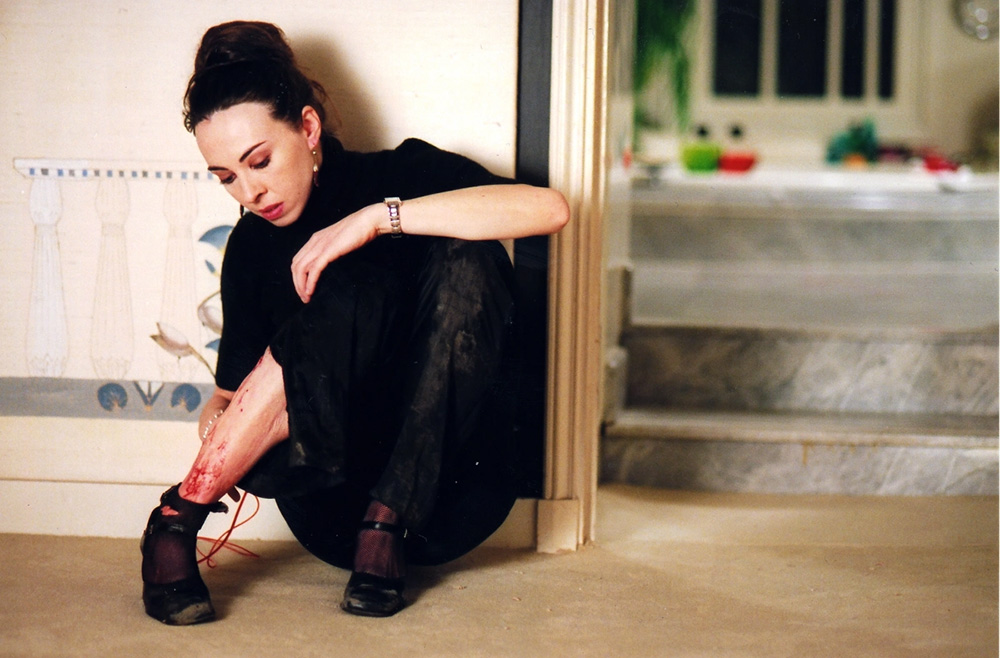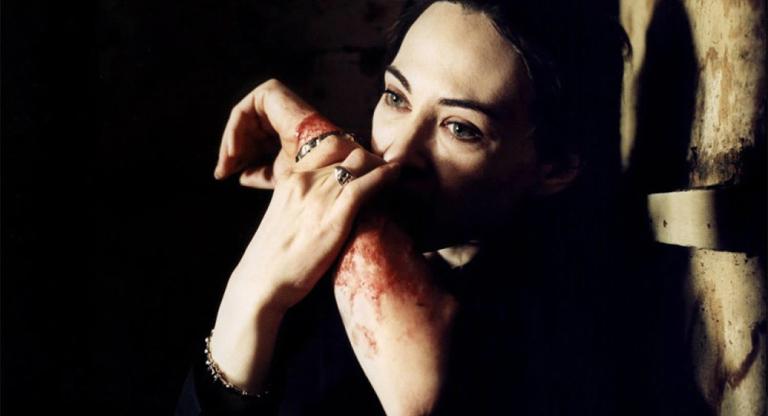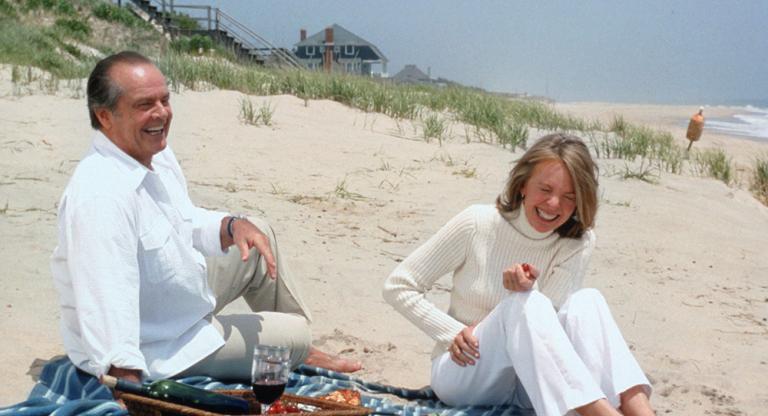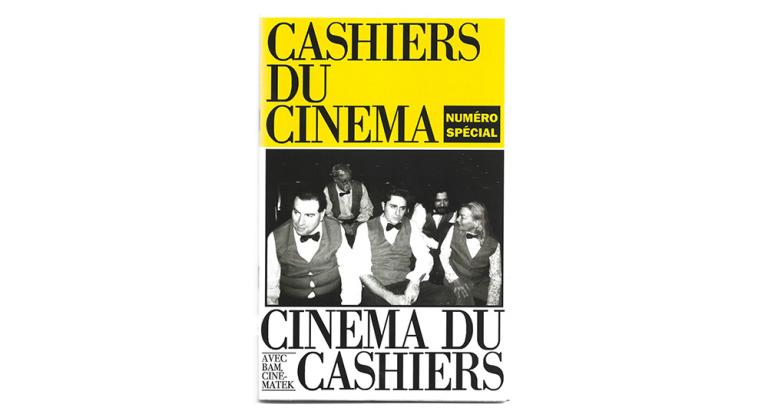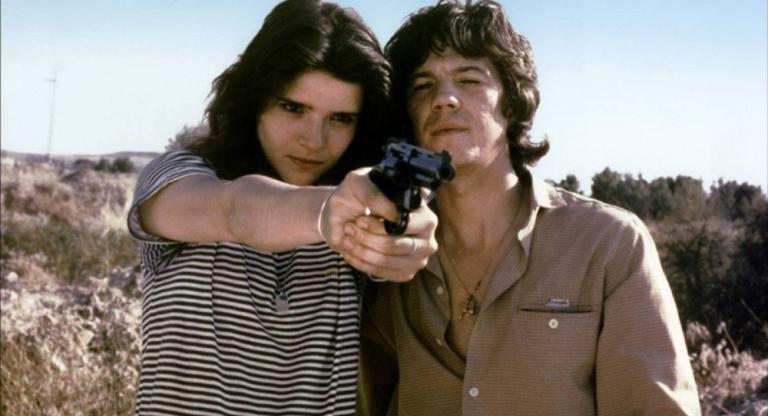Harrowing, soul-baring, nauseating: Marina de Van’s Dans ma peau [In My Skin] was an extreme-horror favorite making the rounds on DVD in the aughts, but it appears largely forgotten (or perhaps willfully suppressed in memory?) during the digital/streaming era. It’s not hard to imagine why; the story chronicles an office worker named Esther (played by de Van) who becomes obsessed with mutilating her own skin after suffering a banal leg injury, to the point of auto-cannibalism. The solitary nature of Esther’s addiction in Dans ma peau invites multiple interpretations, but I was evenly shocked and not shocked when de Van told me it was directly inspired by her own experiences and, indeed, made as a kind of release therapy. We spoke ahead of this week’s 35mm presentation at the Museum of Modern Art (where, full disclosure, I am an employee in the Film Department). An edited transcript of our conversation is below.
Steve Macfarlane: How’s your day going?
Marina de Van: Well, I lost my vape.
SM: Weed? Or nicotine?
MdV: No, I don’t take weed. Never.
SM: A vape is a terrible thing to lose. So much is bound up in these private rituals. In fact, when I first saw Dans ma peau I wondered if it wasn’t a metaphor for drug addiction, or—as some have theorized—anorexia?
MdV: It’s not a metaphor. It’s my story. But when I released the film I did not announce that, because I didn’t want it to be received as some kind of testimony, as if I were confessing to a reporter. I wanted it to be considered as a work of art. So I insisted on the feeling surrounding self-mutilation, which is feeling like your body doesn’t belong to you. And it’s weird: the body has its own life outside what you can see. These were universal feelings for me. What do you see of your body? Can you see your entire body? No. You can’t see your head, you can’t see your shoulder, you can see one leg but not the other, one arm, one hand—only pieces. That’s your life. So explaining the movie, my thesis was: a woman feels her body is not her own, and the only way she knows how to reconnect is through pain. It was not an act of destruction or hate. It was a way to feel that you are whole, and that you are alive. That’s why I didn’t say it was my story.
SM: Where did this idea begin?
MdV: It was simply my story, my life. What was invented? Esther’s job, her boyfriend. But all the self-mutilations were ones I had done in the past—in the recent past. So when I was in school, people learned my story, and two classmates tried to exploit it, to use it in their own movie. I said, “Please. Please. Please. That’s my story. If someone has to tell it, it’s me, not you. You’re not legitimate to talk about that, it’s my private life.” They didn’t listen. So I had another first feature planned, but I changed my mind and I said, ”OK, since everybody wants to tell my story, I’m going to tell my story in my own way. Everybody will be able to see what’s a true narrative about that, what she—I—really felt, what’s logical and what isn’t.” It was very tough. We did it with very little money, no known actresses, my name everywhere, on everything. My producer told me, “Well, the problem is you are a no one, so we need Vanessa Paradis to play this role.” I said, “You’re no one, as well. Should I go to a bigger producer?” In the end I provided myself. Many scenes were shot at my parents’ house, i.e. for free. And we organized a lot with very little money. I never spoke with the financial people beyond that.
SM: I can’t possibly imagine what it’s like to direct others, and yourself, all in one movement—even if the movie doesn’t also involve blood, effects, gore, etc.
MdV: Well, I had a coach on-set. I couldn’t direct myself, and I also interact with another actor. I need to be focused on the scene. I couldn’t judge my own interpretation, nor his.
SM: I was nineteen when I saw this movie for the first time; it reminded me of girls I had met as a teenager who were willing to admit they cut themselves. Surely, as you screened this film and traveled with this film, people came to you with their own stories...
MdV: Yeah, but it was more people with disabilities. Separate from that, one person sent me a letter saying they had been inspired to mutilate themselves after seeing my film. It was very sad. The reason I assumed the lead role was because no actress would have understood that it was not about violence. They would have performed the mutilation scenes with a kind of anger, or cruelty. That wasn’t my experience. My experience was a state of grace, happiness, smoothness, in a way. . . . So I needed to convey those feelings—not hate, anger, destruction, hysteria, not all of that.
SM: How much of your legacy is bound up in this film? Do people still want to talk about Dans ma peau even though your mind is somewhere else?
MdV: I didn’t stop living in 2002, and I don’t like being seen as “the filmmaker behind Dans ma peau”, because I made other movies and I’m working on new movies. So for me it’s an old story. I’m very happy it’s being projected at the MoMA, but I don’t consider Dans ma peau a horror movie.
SM: Ron Magliozzi and Caryn Coleman programmed it in the “Body Horror” subgenre. I think it plays the same week as Trouble Every Day [2001], High Tension [2003]—
MdV: Maybe it’s “body horror,” but I don’t see it. I don’t like Trouble Every Day. The images are so beautiful that it makes self-mutilation look good! In my view, you have a moral task with something like that—you’re not here to draw the attention of people living on that borderline. You must give them a message which is clear enough, the message that they should not go searching for more blood.
SM: Do you like Claire Denis films generally?
MdV: No.
SM: What’s the problem?
MdV: I fall asleep. I mean, she is clearly a very great talent. So I don’t feel concerned. But I don’t despise her work, I don’t doubt that she is a great and important filmmaker—it’s just not for me.
SM: Who is for you?
MdV: Ozon. Pascal Bonitzer. Jacques Audiard.
SM: You said you had to fabricate the job situation, the boyfriend—surely there are some criticisms of society in these fabrications. Even when I was nineteen I understood this was a movie about the drudgery of work, maybe a kind of punk movie, about the psychological cost of performing the same role every day, meeting the expectations of others…
MdV: I don’t know what to say.
SM: You never had a yuppie job like Esther has in the movie?
MdV: I have never had to wear a mask, no.
SM: What is the closest you got to that? This interview?
MdV: Maybe the interviews when it was released in 2002. But that wasn’t a mask either, because I was sincere. The only thing I was hiding was the fact that Esther was me. But all the answers I gave to those journalists, all the things I said, I believed. I never lied, I just hid one piece of information.
SM: Do you like the movie? Do you never wanna watch the movie again?
MdV: I can never watch it again. I never watch any of my films again. I don’t want to. I’m afraid. What do you want me to say?
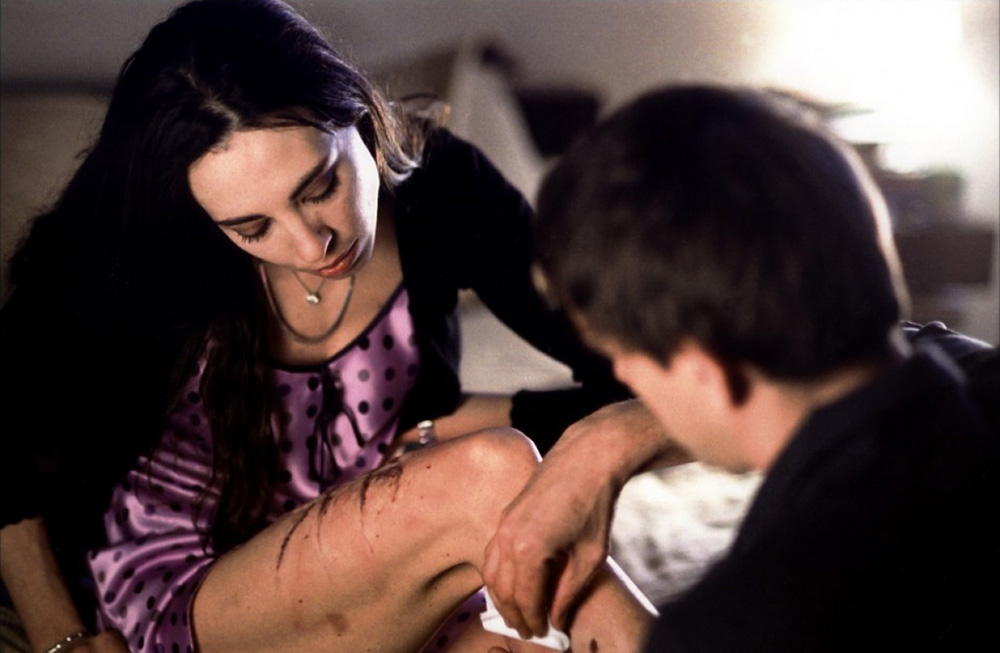
SM: What would you have done if you hadn’t become a filmmaker?
MdV: My wish was to be a sculptor. I passed both the exams—to enter art school, and to enter school for cinema—and what I told myself was, “I will do the job according to whichever school will take me.” I chose to study film, but if it had been to the contrary, or if I had failed the cinema exam but [been] accepted by the art school, I would be a sculptor now.
SM: So the film was made to deal with a feeling.
MdV: Making the film was a conscious attempt to stop self-mutilation. Once it was in a movie, I wouldn’t suffer the depression of performing this parody, this masquerade, in real life. I would have the feeling that I was imitating myself, so the film cured my self-mutilation. But [it was] also revenge upon those who tried to steal my story. It wasn’t difficult to hide the autobiographical aspects of what I had shot. The problem was that I wanted Dans ma peau to be recognized as a piece of art, not as a complaint. Otherwise, people love seeing the film and saying, “Okay, she’s crazy, she’s sick, and she invited us to sit and watch her exhibit her trauma and disturbance.” Well, that’s not what I wanted. I wanted to be a filmmaker. So fiction allowed me the smartest way to present myself.
SM: The film allowed you to concretize this private thing, between you and yourself alone, in order to stop you from doing it again. And it worked?
MdV: Yeah.
SM: Did people think the movie was evil? Incendiary? How do you respond to a person who views this as encouraging self-mutilation?
MdV: The film presents it as a disease. I did my best not to defend the idea of self-mutilation; the film shows the deep solitude, the loneliness, of this character.
SM: Some people must have felt grateful to you for representing this.
MdV: I have never met someone with the same relationship to self-mutilation as I had. Never. What I heard was from people who cut themselves in the same place. Today, I don’t care—because art is life. Enough years have passed, I no longer bother pretending it was not my story. At the end, you know, the dead skin was my real skin. Since then, I lost it. I’m not sure where I put it. My real skin is lost in my apartment.
SM: You had a piece of real skin preserved? How?
MdV: There’s a scene in the movie where Esther talks to a pharmacist, and he explains [how] to treat the skin in potassium. So I put it in a bath with this chemical. It died anyway. I wanted it to be my friend forever, you know? Like when a baby has a favorite teddy bear . . . It was precious to me. I had a photo album I showed to several people. The progression of my self-mutilation was very beautiful; at the end there was a picture of me in the mirror, my face painted in blood. I was so beautiful, I was so happy. It was like being touched by grace. Those photographs were very strong because my expression, my gaze, was so overwhelming—the ecstasy of it.
SM: How will you feel if you find it?
MdV: Glad to recover a piece of my past. You know, serial killers have their little trophies.
SM: I mean it’s human nature to pick at a scab, scratch a wound, or separate dying skin from fresh. Anyway, your family must have been horrified.
MdV: I have a friend who assisted with one of my self-eating moments. He was sitting in front of me, telling me his love stories or whatever, and very often he would say: don’t cut there, that’s an artery. Rather, cut there. After that my friends were very opposed to me seeing him again, because he didn’t try and stop me. But I thought it was a good proof of love, that he didn’t. He also took the time to speak with my parents by phone, to tell them it was under control. I argued with my parents; I kept saying, “It’s my body not yours!” And they said, “No, it’s not your body.” I wanted so much for this body to be mine, not an extension of my parents or their bodies. They didn’t understand. I began to want to eat my brother and my father, I wanted to eat their knees. I was looking into anaesthesia and everything. I was depressed that they would not offer this to me.
SM: Why the knees specifically?
MdV: I don’t know. Anyway, my cousin, also a girl, who I happened to be close with, came to me and said: “You have a choice. Either you go to see a shrink, or we commit you to a hospital with the complicity of a doctor.” I chose the psychotherapist.
SM: Are you grateful that your cousin forced you to talk to that psychotherapist?
MdV: Absolutely. It was a dead end.
SM: Your interest in cannibalism was a dead end.
MdV: Yeah, because I tried to tan and save this piece of skin, as I mentioned earlier, but it only works if it’s new each time. And it was dead twice over. I didn’t want to repeat myself. Like people who cut themselves in the same way—it becomes boring. I wanted to go further, do more, every time: better, different. So it became very dangerous for me.
SM: Once you had made the film, you never felt those desires again?
MdV: I’m no longer able to self-mutilate. I was in a bad state back then. Today, when they take blood from me, I’m frightened.
SM: You’re more frightened now than when you were in your twenties.
MdV: Well, I don’t feel the urge. The act has lost its meaning.
SM: Are you sad about that?
MdV: Life is much better now.
SM: Let’s return to something you said earlier: how we can’t fully see or know our own bodies. Really, what we’re talking about is the idea of reason over passion—the mind over the body. It’s an old idea and seems very out of fashion today. Would you describe yourself as being against the Enlightenment?
MdV: Enlightenment is understanding that you don’t exist as an individual. A universal consciousness, maybe, if you want— But you don’t exist as a petite body-mind with free will and choice, and independence. You are not that small thing. You’re God. I am God. We are the same. I don’t believe anymore in the self, or that we have a self. I think there’s a body-mind, which is like a puppet, a rubber. I completely lost the sense of self.
SM: It doesn’t sound like you found much solidarity at the end of making Dans ma peau. This was still your story.
MdV: People were touched by it, that was enough. I didn’t need to meet someone with the same pathology. I didn’t care. I just wanted to touch people and to be understood. I succeeded.
